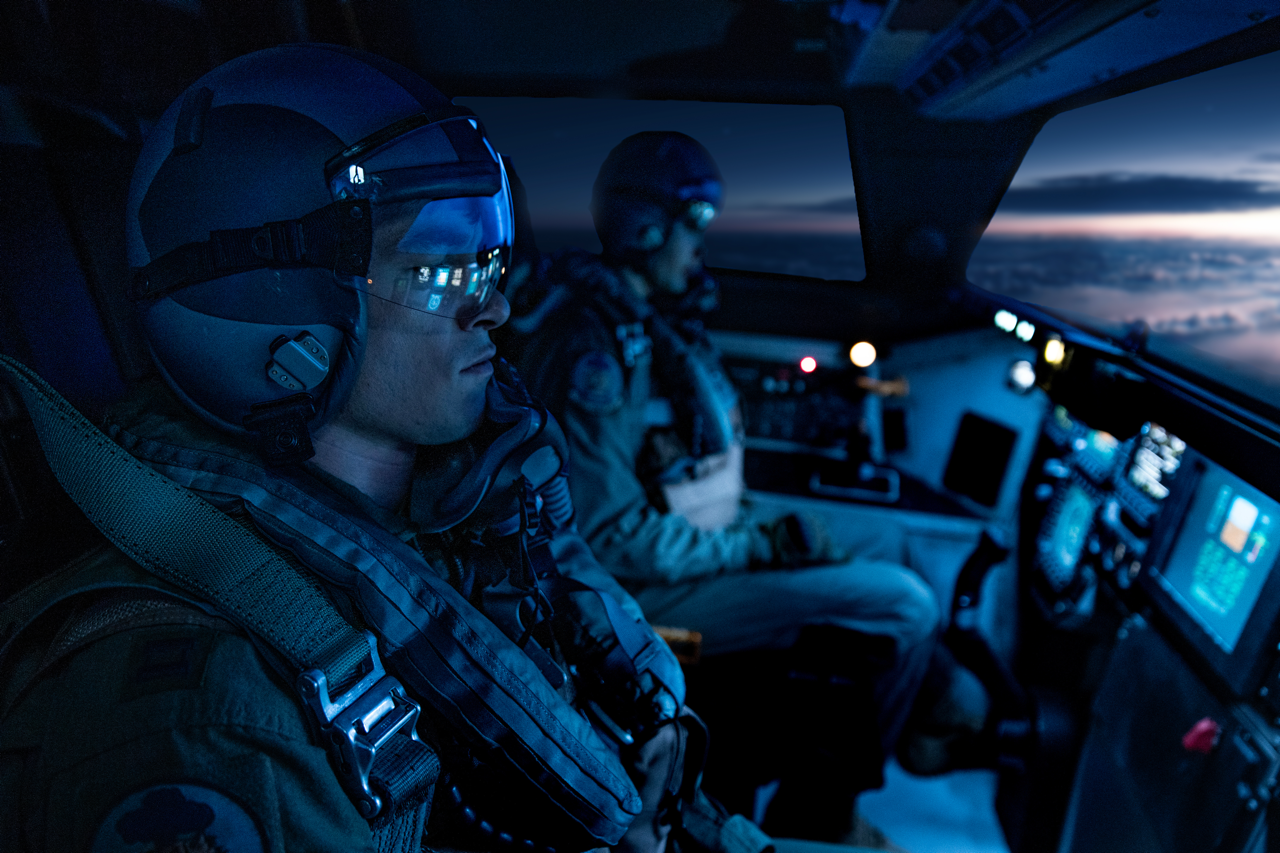'A House of Dynamite' Review: Idris Elba and Rebecca Ferguson Lead Kathryn Bigelow’s Precision-Built, Unnervingly Intense Thriller
A House of Dynamite. Rebecca Ferguson as Captain Olivia Walker in A House of Dynamite. Cr. Eros Hoagland/Netflix © 2025.
A pulse-pounding return to the director’s chair and to NYFF, as Kathryn Bigelow crafts a high-stakes thriller that’s part crisis procedural, part gut-punch adrenaline rush, and a masterclass in cinematic dread.
It’s been eight years since Kathryn Bigelow last helmed a feature, and with A House of Dynamite, she doesn’t merely return to the director’s chair — she detonates all preconceived expectations. This is not a cautious comeback. It’s a fearless declaration of continued relevance, delivered with surgical precision and cinematic fury. From its very first frame, Bigelow reminds audiences why she’s one of the most vital directors of our time.
The film is a precision-tooled, real-time geopolitical pressure cooker that unspools over a taut, breathless 112 minutes. Yet the emotional and intellectual tremors it sets off last far beyond the final frame. Like The Hurt Locker and Zero Dark Thirty, this is engineered to destabilize — but there’s a new discipline here, a stripped-down intensity that challenges the audience to confront the unthinkable. Bigelow locks us into the nerve center of a looming catastrophe: the agonizing uncertainty in the final moments before a potential nuclear strike on U.S. soil.
This isn’t a film preoccupied with explosions or heroics. It’s a brutal meditation on inaction — the haunting silence that hangs between detection and detonation. The tension lies in the paralysis, in the barely perceptible glances exchanged in war rooms, in the accumulating pressure of decisions that can’t be undone. Bigelow magnifies every second of that nightmare timeline. She offers no relief, no cinematic hand-holding — only the unrelenting weight of what might happen next.
Netflix’s latest original feature thrives on its terrifying simplicity: a nuclear missile is detected en route to a U.S. city. Its origin? Unknown. Its destination? Undisclosed. The clock is ticking — 20 minutes — and America’s leadership must decide how to respond. There are no action heroics, no civilians-in-peril cutaways, and no over-the-top dramatics. The drama is confined to war rooms, command centers, and airbases. Panic is tempered by protocol, and emotion is buried beneath chains of command. The stakes are sky-high, but the style is surgical.
Rebecca Ferguson commands the screen as Captain Olivia Walker, a ranking official on the NORAD missile defense team. Her performance is a study in composure under duress. Her voice carries authority, but it’s laced with tremors of fear and restraint. Jared Harris, portraying Secretary of Defense Reid Baker, wears the film’s emotional toll like a second skin — a portrait of leadership as a slow-motion collapse. Idris Elba, in a role unlike any he’s played before, embodies the President with aching sincerity. He’s measured, even subdued, but the weight of the office bears down on him in real time. This is not a grandstanding POTUS; this is a man facing an impossible moral equation.
The supporting cast is just as calibrated. Anthony Ramos, Gabriel Basso, Moses Ingram, Jonah Hauer-King, and Greta Lee each shine in tight, purpose-driven moments. Lee’s role in particular — an intelligence analyst trying to track down the missile's origin while fielding calls from a Civil War reenactment — adds layers of tragic irony and biting commentary about how America mythologizes its strength.
A House of Dynamite. (L-R) Anthony Ramos as Major Daniel Gonzalez and Abubakr Ali as Specialist Dan Buck in A House of Dynamite. Cr. Eros Hoagland/Netflix © 2025.
What elevates the film beyond a straightforward thriller is how it tackles the terrifying reality of leadership under unimaginable pressure. Would you tell your loved one if they were in a city about to be destroyed? Or would you just try to comfort them? That question haunts the characters here — one of whom chooses to spend their final moments on the phone with a daughter in Chicago, knowing the city may be targeted. There is no sentimentality in the decision, only silence.
Bigelow’s structural brilliance lies in her narrative design. The film replays the same 20-minute crisis from three overlapping vantage points: NORAD’s defense HQ in Alaska, the D.C. war cabinet, and finally, the President’s POV — who’s introduced far later than expected. We first hear Elba’s voice offscreen, issuing orders. By the third act, we see him on the ground at a school basketball camp with children. It’s a chilling juxtaposition, evoking memories of President Bush reading to a classroom during 9/11. Part one and two play in real time. Part three accelerates slightly — or maybe the audience is simply used to the repetition by that point.
The repetition never feels redundant. It’s like Rashomon by way of Dr. Strangelove. We see the same commands issued from different rooms, hear the same line — “There is no Plan B” — and observe how opposing ideologies shape the same crisis. Ferguson’s character clutches a dinosaur toy from her son, a subtle but effective symbol of extinction. And in one of the film’s darkest turns, Jared Harris’s Secretary of Defense chooses suicide over retreating to a nuclear bunker, knowing his daughter is likely about to die — a blink-and-you’ll-miss-it scene that adds devastating emotional gravity to the ticking-clock narrative, underscoring just how much is occurring in every split-second of the film’s compressed real-time structure.
The missile’s origin remains uncertain. As we see Gabriel Basso as Deputy National Security Advisor Jake Baerington engage in negotiations with a foreign minister from Russia, it becomes clear that Jake might be the most qualified and level-headed voice in the room when discussing nuclear warfare, protocols, and the far-reaching consequences of miscalculation. He speaks fluently in variables, redundancies, and probabilities — a human algorithm processing the weight of annihilation in real time. Yet his youth and lack of seniority make it harder for others to take him seriously. In a chillingly effective sequence, Jake steps in for the President and initiates de-escalation talks with the Russians, who appear to confirm that they are not responsible — and suggest that China likely isn’t either.
A House of Dynamite. Gabriel Basso as Deputy National Security Advisor Jake Baerington in A House of Dynamite. Cr. Eros Hoagland/Netflix © 2025.
The implication, voiced quietly, is that it could be North Korea — or worse, an unclaimed rogue actor. There are options for retaliation: “rare, medium, and well done,” quips the military officer holding the nuclear football. “It illustrates the point,” responds Elba’s President. It’s gallows humor at the edge of annihilation.
Visually, the film is grounded in realism. Barry Ackroyd’s handheld cinematography gives each location a feeling of present-tense volatility. Kirk Baxter’s editing slices between control rooms, satellite feeds, and strained human faces, while Volker Bertelmann’s score pulses and hums like a countdown timer that won’t shut off.
Much of the suspense comes not from action, but from language — cold, bureaucratic phrases like “Defcon 1 initiated” or “19 minutes to impact” repeated with chilling cadence. There’s no Plan B. Only a plan. The plan says to retaliate. The plan says to escalate. But no one is sure what the plan was designed to solve anymore.
POPULAR ON THE CINEMA GROUP
In the final sequence, a flash of light illuminates the screen as buses carrying evacuees enter the Raven Rock bunker — then, sudden black. No explosion. No visible aftermath. Just a vacuum of silence and unanswered questions. Did the bomb strike its target? Did we retaliate? Are we still alive, or is this the calm before a permanent silence? The audience at NYFF audibly reacted. Some gasped. Others booed — not from disappointment, but from sheer disbelief. We’ve been conditioned to expect catharsis. Bigelow withholds it, deliberately.
A House of Dynamite. Anthony Ramos as Major Daniel Gonzalez in A House of Dynamite. Cr. Eros Hoagland/Netflix © 2025.
It’s a bold creative choice, one that forces viewers to confront the terrifying ambiguity of our modern reality. Her message is chilling and clear: the true horror isn't the moment of nuclear war itself, but the haunting realization of how catastrophically unprepared we are to prevent it. Let us appreciate Bigelow's conviction in making us reckon with that possibility — and let us hope we never have to witness that final scene unfold in real life, beyond the safe distance of a cinema screen.
And then it ends. A single, jarring cut. And silence. Deafening. Moral. Cinematic silence.
This isn’t just one of the best films of the year. It’s a reckoning.
Rating: ★★★★½
That's A Wrap
|
A House of Dynamite [2025]
|
That's A Wrap | A House of Dynamite [2025] |
“Kathryn Bigelow returns with a vengeance, delivering a pulse-pounding thriller that lands like a gut-punch to the American conscience.”
CREDITS
Screened: Thursday, September 25, 2025, 6:30PM | Walter Reade Theater
Cast: Idris Elba, Rebecca Ferguson, Gabriel Basso, Jared Harris, Tracy Letts
Director: Kathryn Bigelow
Screenwriter: Noah Oppenheim
Release Date: In Theaters October 10, 2025, Streaming October 24, 2025 on Netflix
Rating: R


























